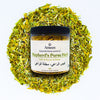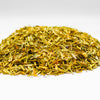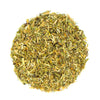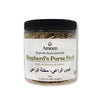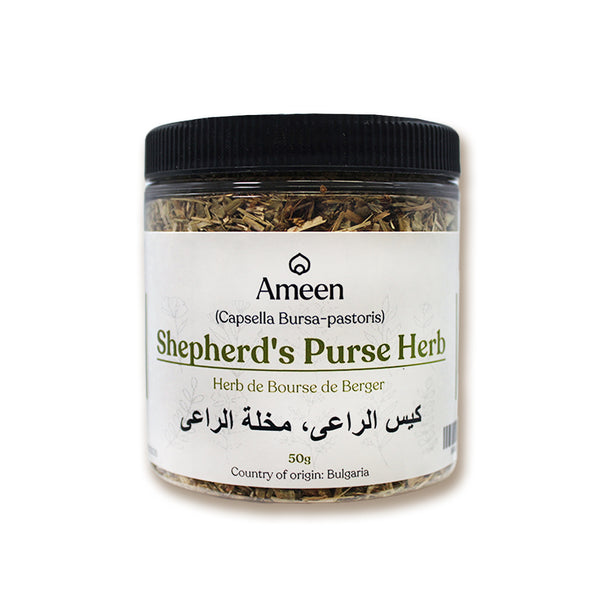Shepherd's Purse, scientifically named Capsella bursa-pastoris, is a versatile herb celebrated for its heart-shaped seedpods and distinctive, slightly peppery flavor. With a history rooted in both culinary and herbal traditions, this dried herb is prized for its unique taste and adaptability. Whether used in its natural dried state or rehydrated, Shepherd's Purse offers a myriad of possibilities for culinary and wellness applications.
Culinary Uses of Shepherd's Purse
Shepherd's Purse brings a delightful flavor to a variety of dishes:
- European Cuisine: Enhances soups, stews, and sauces with its earthy, slightly bitter notes.
- Asian Cuisine: Frequently used in Korean and Chinese dumplings, adding a subtle tangy twist to the filling.
- Seasoning: Sprinkled over rice, vegetables, or grains for a touch of savory depth.
- Tea Infusions: Steeped into warm, soothing herbal teas that complement its flavor profile.
Beyond the Kitchen
Shepherd's Purse has long been appreciated for its historical use in traditional remedies and natural wellness practices:
- Traditional Teas: Often included in herbal blends for its gentle properties.
- Topical Applications: Occasionally used in DIY herbal remedies and poultices.
- Holistic Uses: A staple in homeopathic practices across cultures.
Versatile Forms and Preparation
Shepherd's Purse is available in several forms to suit different needs:
- Dried Herb: Perfect for soups, stews, or seasoning.
- Powdered Form: A convenient addition to culinary or herbal preparations.
- Rehydrated: Ideal for recipes requiring a fresh herb texture.
Botanical and Global Significance
Botanical Name: Capsella bursa-pastoris
Common Names:
- English: Shepherd's Purse, Lady's Purse, Mother's Heart
- French: Bourse à Pasteur, Herbe aux Bourses
- German: Hirtentäschel, Schafgarbe
- Italian: Borsa di Pastore
- Other: Bolsa de Pastor, Tiền Liệt Nữ, Pickpurse, Witches' Pouches, Wandelröschen

